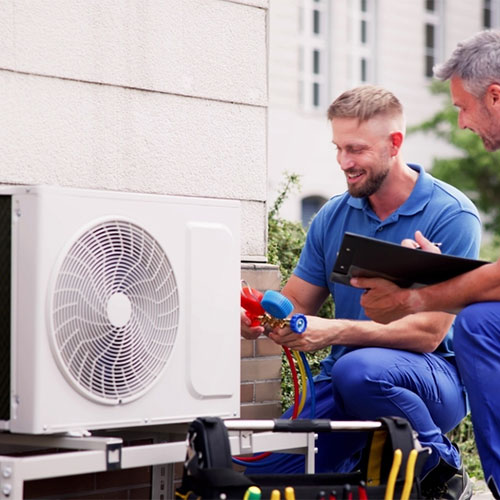 As temperatures soar, your air conditioning unit becomes your best friend, providing a cool sanctuary from the summer heat. But what happens when that trusty AC starts to freeze up, leaving you sweating in discomfort? Preventive maintenance is critical to ensuring your cooling system operates efficiently and effectively throughout the year’s hottest months. In this guide, we’ll go over preventative measures to keep your air conditioner from freezing up so you can continue to feel comfortable and have peace of mind.
As temperatures soar, your air conditioning unit becomes your best friend, providing a cool sanctuary from the summer heat. But what happens when that trusty AC starts to freeze up, leaving you sweating in discomfort? Preventive maintenance is critical to ensuring your cooling system operates efficiently and effectively throughout the year’s hottest months. In this guide, we’ll go over preventative measures to keep your air conditioner from freezing up so you can continue to feel comfortable and have peace of mind.
Understanding the Causes
Before delving into preventive measures, it’s essential to understand why air conditioners freeze up in the first place. Restricted airflow is a common cause, which clogged vents, unclean air filters, or blocked ductwork can bring on. Low refrigerant levels or a broken thermostat can also cause freezing. Additionally, operating your AC at excessively low temperatures can cause moisture to accumulate on the evaporator coils, leading to icing.
Proactive Maintenance Tips
Regular Filter Replacement: Dirty air filters restrict airflow, making your air conditioner work harder and raising the possibility of freezing. Depending on usage, make it a habit to inspect and replace your air filters every 1-3 months.
Clear Obstructions: Ensure all vents and registers are unobstructed by furniture, drapes, or other objects. Proper ventilation is essential for your air conditioning system to operate as efficiently as possible.
Clean the Outdoor Unit: Leaves, debris, and grass clippings can accumulate around the outdoor condenser unit, inhibiting airflow and causing the AC to overheat. On a regular basis, keep the area around the unit clean and clear of obstacles.
Schedule Professional Maintenance: An annual maintenance visit from a qualified HVAC technician can help identify and address potential issues before they escalate. During these visits, technicians will inspect your system, clean components, and replenish refrigerant levels if necessary.
Adjust Thermostat Settings: Avoid setting your thermostat to extremely low temperatures, especially during humid weather. Optimal indoor temperatures typically range between 72-78°F, lowering the possibility of evaporator coil moisture accumulation.
Insulate Ductwork: Properly insulated ductwork helps maintain consistent airflow and prevents heat transfer, ensuring your AC operates efficiently. Inspect ductwork for leaks or damage and repair as needed.
Monitor Refrigerant Levels: Your air conditioner may freeze due to low refrigerant levels, indicating a system leak. Contact a technician to check and replenish the refrigerant if you observe a decrease in cooling efficiency or ice accumulation on the evaporator coils.
This summer, don’t let a frozen air conditioner leave you hot under the collar. By implementing these proactive maintenance tips, with the reliable assistance of Infiniti HVAC, you can ensure that your AC operates smoothly and efficiently, providing reliable cooling when needed. Remember, prevention is critical to avoiding costly repairs and maintaining indoor comfort and convenience all season. Schedule regular maintenance, keep filters clean, and stay vigilant for signs of trouble to keep your cool without interruption.

